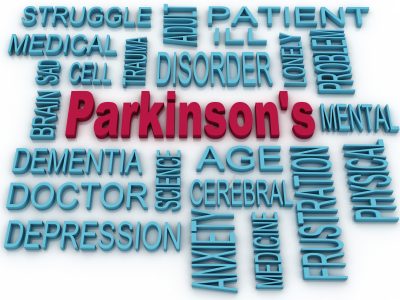 I was privileged to speak yesterday to the Dallas Area Parkinson’s Society (DAPS) about how care partners can embrace wellness and joy. For persons living with Parkinson’s Disease and other neurological conditions, finding wellness and joy in everyday life can be challenging and elusive at best. I know this first-hand, as my mother lived with Parkinson’s Disease (PD). Speaking from experience as her partner in this journey, my words of wisdom for embracing wellness and joy encompassed some simple steps.
I was privileged to speak yesterday to the Dallas Area Parkinson’s Society (DAPS) about how care partners can embrace wellness and joy. For persons living with Parkinson’s Disease and other neurological conditions, finding wellness and joy in everyday life can be challenging and elusive at best. I know this first-hand, as my mother lived with Parkinson’s Disease (PD). Speaking from experience as her partner in this journey, my words of wisdom for embracing wellness and joy encompassed some simple steps.
- First, pat yourself on the back for the bravery and courage it takes to face PD. It’s not always a friendly companion. I love the hummingbird as a symbol of tireless joy and accomplishing that which seems impossible. Care partners remember every day how special you are.
- There are plenty of difficult obstacles in your path, but don’t allow yourself to become one of them. Accept your faults and imperfections and move on with. Those who linger on imperfection will never experience wellness or joy.
- Be like the sun, and shine even if no one ever thanks you for it! Expecting of others is almost always a road to disappointment, so shine your light if for no one else but yourself! Others will see it, I promise!
- Live for today and only today. We spend far too much time worrying about what could happen tomorrow and missing the precious moments that this day brings.
- When life is sweet, say thank you and celebrate; when life is bitter, say thank you and grow. We’ll be better people for embracing both as a gift.
- Do all in your power to reduce stress. If you are getting on your own nerves, it may be time for re-grouping! Stress affects our physical, social, emotional and spiritual well being. Learn ways to cope with and reduce stress such as:
- Practice deep breathing throughout the day. Fully fill those lungs and then a long, slow exhale through the mouth. Deep breathing reduces stress, improves posture, relieves pain and boosts energy, among many other health benefits.
- Keep moving. When you don’t feel like moving do it anyway. Your body, brain and well being will thank you. Find exercise groups specifically for PD. You’ll have the added benefit of connecting with others while improving your balance, energy, and stamina.
- Laugh…often! Laughter changes the chemicals in our brain and makes us feel good all over. And it’s okay to laugh at ourselves. In fact, you might start there!
- Get creative. Research tells us that persons living with PD often have more creative brains. Think about this. You have to find ways to do things differently. So start a new creative adventure and embrace it. You might just surprise yourself!
- Connect with others. Intentionally hug and touch (all brain boosting, chemical changing things happen when you touch!). This will add meaning to your life that has immeasurable benefits.
- Embrace the Journey. It was not what you had planned, nor one you would have chosen, but it’s yours. Sweet, precious moments of joy, happiness, and wellness will come out of this practice. You will enrich your life and the lives of those around you.
Pam Brandon is the President/Founder of AGE-u-cate® Training Institut and a passionate advocate for those living with Parkinson’s Disease and their care partners. She feels blessed each day for the Parkinson’s journey that she and her mother Jeanette shared for almost 10 years.
The Dallas Area Parkinson’s Society is celebrating almost 40 years of impacting and improving the lives of those affected by Parkinson’s Disease. The work they do and others across the country is helping to create transformative change.
 What is a harder conversation topic with elderly parents – money or death? If you guessed death, you get a gold star. Why do we find it so very difficult to discuss the inevitable? Surely we’ve all come to grips with the fact there is one thing certain about life and that is death. We can embrace the ending by learning to embrace the life that we still have with our loved ones until the times comes when they are no longer with us.
What is a harder conversation topic with elderly parents – money or death? If you guessed death, you get a gold star. Why do we find it so very difficult to discuss the inevitable? Surely we’ve all come to grips with the fact there is one thing certain about life and that is death. We can embrace the ending by learning to embrace the life that we still have with our loved ones until the times comes when they are no longer with us. Eldercare is becoming more about caring for those with dementia. Because our fastest growing segment of the population are those 85 and older, it correlates with the rise in people living with dementia. In fact, one in three people age 85 and older are living with some level of dementia. There are over 1 million Americans living with Parkinson’s Disease and over 10 million worldwide. This number is also rising with the increase in longevity.
Eldercare is becoming more about caring for those with dementia. Because our fastest growing segment of the population are those 85 and older, it correlates with the rise in people living with dementia. In fact, one in three people age 85 and older are living with some level of dementia. There are over 1 million Americans living with Parkinson’s Disease and over 10 million worldwide. This number is also rising with the increase in longevity.